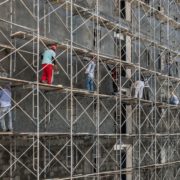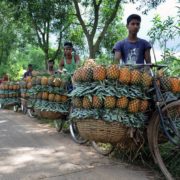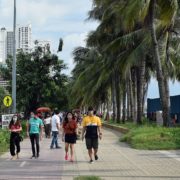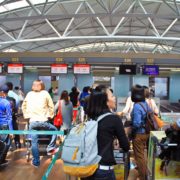Tag Archives | COVID-19
Economics, Environment, Health, Industry and trade, Social development and protection, Uncategorized
 Economics, Finance sector development
Economics, Finance sector development
 Governance and public sector management, Health, Poverty, Social development and protection
Governance and public sector management, Health, Poverty, Social development and protection
 Economics, Finance sector development, Health, Social development and protection
Economics, Finance sector development, Health, Social development and protection
 Governance and public sector management, Health, Industry and trade
Governance and public sector management, Health, Industry and trade
 Economics, Governance and public sector management, Health
Economics, Governance and public sector management, Health
 Economics, Health, Regional cooperation and integration
Economics, Health, Regional cooperation and integration
 Economics, Governance and public sector management, Health, Social development and protection
Economics, Governance and public sector management, Health, Social development and protection
 Economics, Finance sector development, Health
Economics, Finance sector development, Health
 Health, Water
Health, Water

COVID-19’s impact in Asia shapes blueprint for sustainable economic recovery

The economic impact of the coronavirus disease (COVID-19) pandemic in Asia highlights the importance of entrenching longer-term sustainability and economic resilience into the recovery process. The macroeconomic effects of the pandemic, as well as the impact on firms and households in Asia, are featured in a new ADBI edited book, COVID-19 Impacts and Policy Options: An Asian Perspective.
Should emerging Asia worry about a “taper tantrum” post-COVID-19?

With an improved growth outlook in the United States (US) in the second half of 2021 as the economy recovers from the coronavirus disease (COVID-19), in part related to the substantial fiscal stimulus in the US introduced at the start of 2021, the Federal Reserve (Fed) is on course to slow down its asset purchases program, or so-called quantitative easing (QE) tapering.
Lessons for the informal sector from COVID-19
By Alessia Destefanis, Tetsushi Sonobe, Dil Rahut and Jeetendra Prakash Aryal. Posted August 13, 2021

The informal sector, which employs over 62% of the global population, is a fundamental source of livelihood for over 2 billion people (ILO 2020). Here, “employment” includes self-employment, and the informal sector refers to the part of the economy that is generally not monitored by a tax authority or other forms of government. Before the outbreak of the coronavirus disease (COVID-19), the informal sector accounted for 87.7%, 51.5%, and 55.7% of the population in low-, middle-, and high-income countries, respectively (ILO 2018a).
Remittance inflows giving resilience to Bangladesh’s rural economy amid COVID-19

While the World Bank has identified Bangladesh as one of only three big economies that had increases in remittance inflows in 2020, along with Pakistan and Mexico (Ratha et al. 2020), and remittances have long made up a substantial share of people’s income in the country, preliminary results from a recent study supported by the Asian Development Bank Institute (ADBI) finds surprising resilience for remittance inflows into the rural economy during the first wave of the coronavirus disease (COVID-19) pandemic in Bangladesh.
Rethinking the impact of the lockdown on micro, small, and medium-sized enterprises in the Philippines

The National Capital Region (NCR) and four provinces in the Philippines have returned to enhanced community quarantine (ECQ) since 29 March 2021 due to surging cases of the coronavirus disease (COVID-19). The ECQ is the strictest measure for prohibiting the movement of people for nonessential purposes and strengthening curfews. The Philippine government moved to the ECQ, or lockdown, to contain the spread of COVID-19 quickly after the pandemic was identified in March 2020.
Can closing borders shut out new COVID-19 strains?

In fighting the coronavirus disease (COVID-19) pandemic and, in particular, the new strains that are emerging, many countries have adopted the dual approach of closing borders and increasing domestic surveillance. This might be overkill. In fact, the latter might suffice.
Toward an ASEAN COVID-19 travel balloon

While financial markets have responded strongly to the emergency-use authorization of various coronavirus disease (COVID-19) vaccines in several countries, the economic impacts will take much longer to materialize. One reason for this is that vaccinating 60% or more of populations to achieve herd immunity will take time. Reaching herd immunity is critical given the possibility that those vaccinated may still be infectious, despite being immune to the disease.
Toward a robust economic recovery from COVID-19 in Asia and the Pacific

The coronavirus disease (COVID-19) pandemic has been a truly global shock to public health, causing one of the most severe global economic downturns since the Great Depression of the 1930s. Against this context, the 2020 ADBI Annual Conference brought together leading academics, think tank researchers, and policy makers to discuss the impacts of COVID-19 and its policy implications, with a focus on Asia and the Pacific.
COVID-19 and policy responses through the lens of global asset markets and capital flows

The coronavirus disease (COVID-19) pandemic and the resulting lockdowns have led to an unprecedented economic contraction and turbulence in financial markets, which initially caused the largest ever outflows of portfolio capital from emerging market economies (EMEs). Globally, governments have responded to the crisis with substantial fiscal stimulus packages. In addition, central banks around the world have eased monetary policies, with many EME central banks also implementing quantitative easing (QE) measures for the first time.
COVID-19 reminds us to prioritize “water supply, sanitation, and hygiene” (WASH) to reduce child mortality

The coronavirus disease (COVID-19) has registered 959,116 deaths worldwide as of 21 September 2020. While the number is alarming, it is still not large compared with the 5.2 million children who died due to various causes in 2019, according to UNICEF. COVID-19 reminds us how much child mortality continues to be a significant challenge for global health and the global economy. In addition to the loss of human lives, the economic consequences are also significant.


Search
Subscribe / Connect to Asia Pathways
Subjects
- Accelerating Progress in Gender Equality
- Addressing Remaining Poverty and Reducing Inequality
- Agriculture and natural resources
- Capacity development
- Climate change
- Economics
- Education
- Energy
- Environment
- Finance sector development
- Gender
- Governance and public sector management
- Health
- Industry and trade
- Information and Communications Technology
- Infrastructure
- Making Cities More Livable
- Miscellaneous
- Population
- Poverty
- Private sector development
- Regional cooperation and integration
- Sanitation
- Social development and protection
- Strengthening Governance and Institutional Capacity
- Subjects
- Transport
- Uncategorized
- Urban development
- Video Blog
- Water
Recent Posts
- Investing in Childcare a Win for Women and the Economy
- Flush and Flourish: Upgraded Toilets Can Transform Lives in Rural Asia
- New Ways for Climate Finance and Development in Asia and the Pacific
- Rethinking High-Rise Living: Balancing Urban Growth and Sustainability in Asia’s Cities
- Navigating Linear Transport Infrastructure Through Conservation Landscapes




Recent Comments